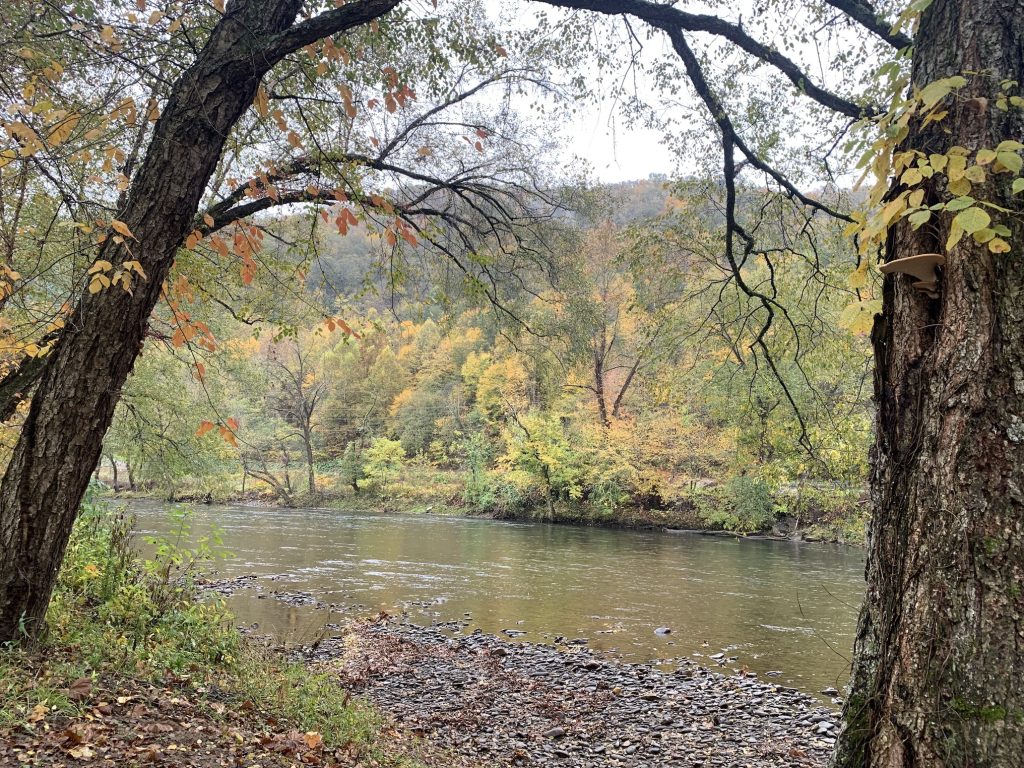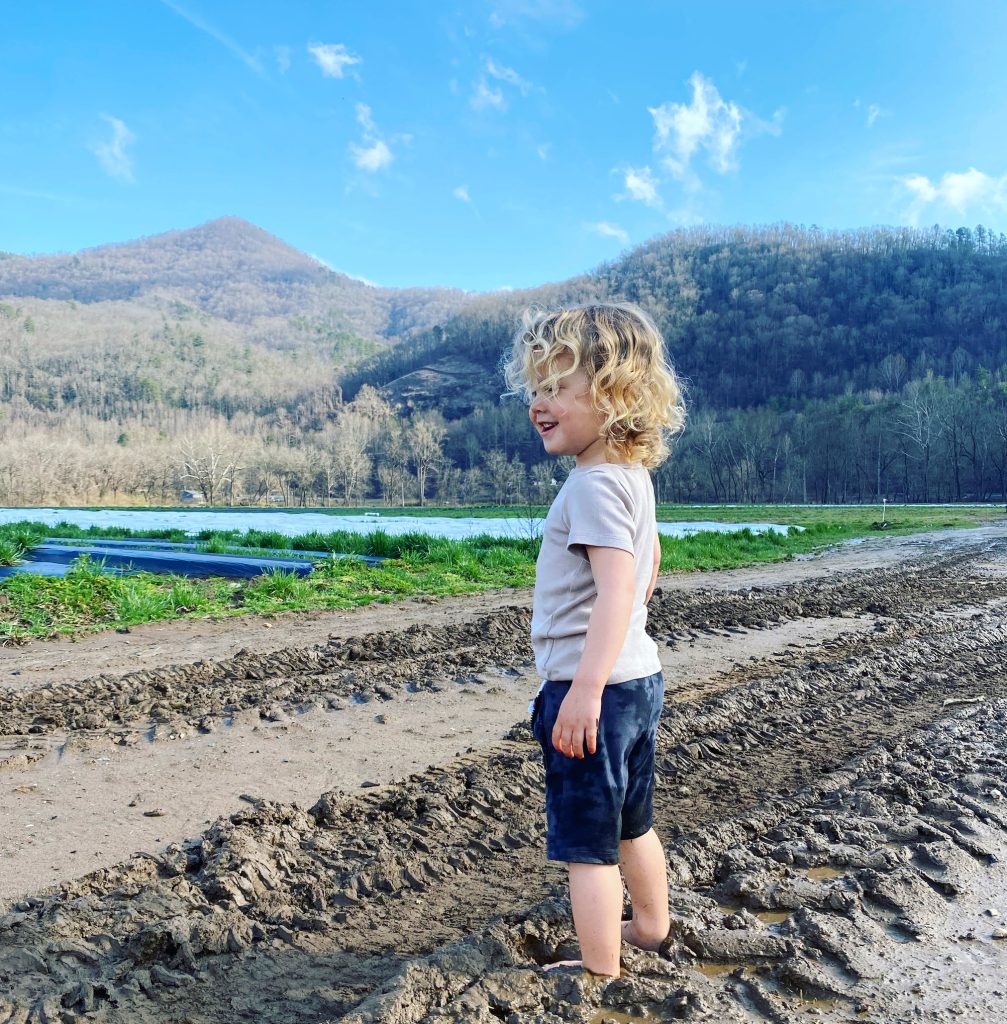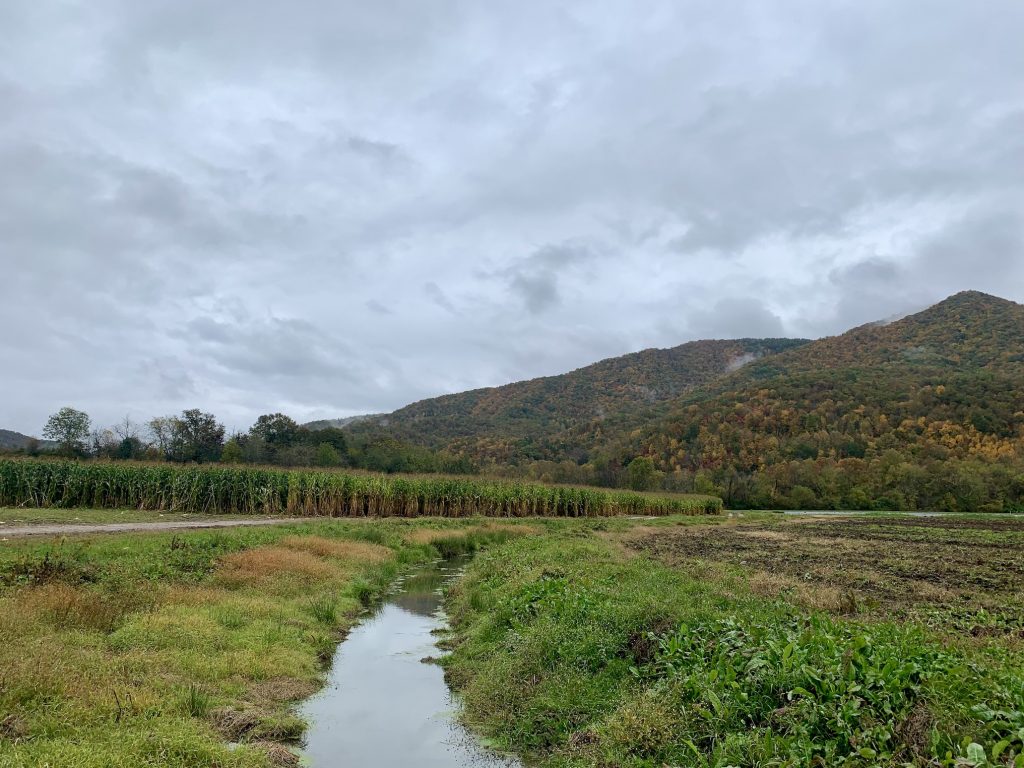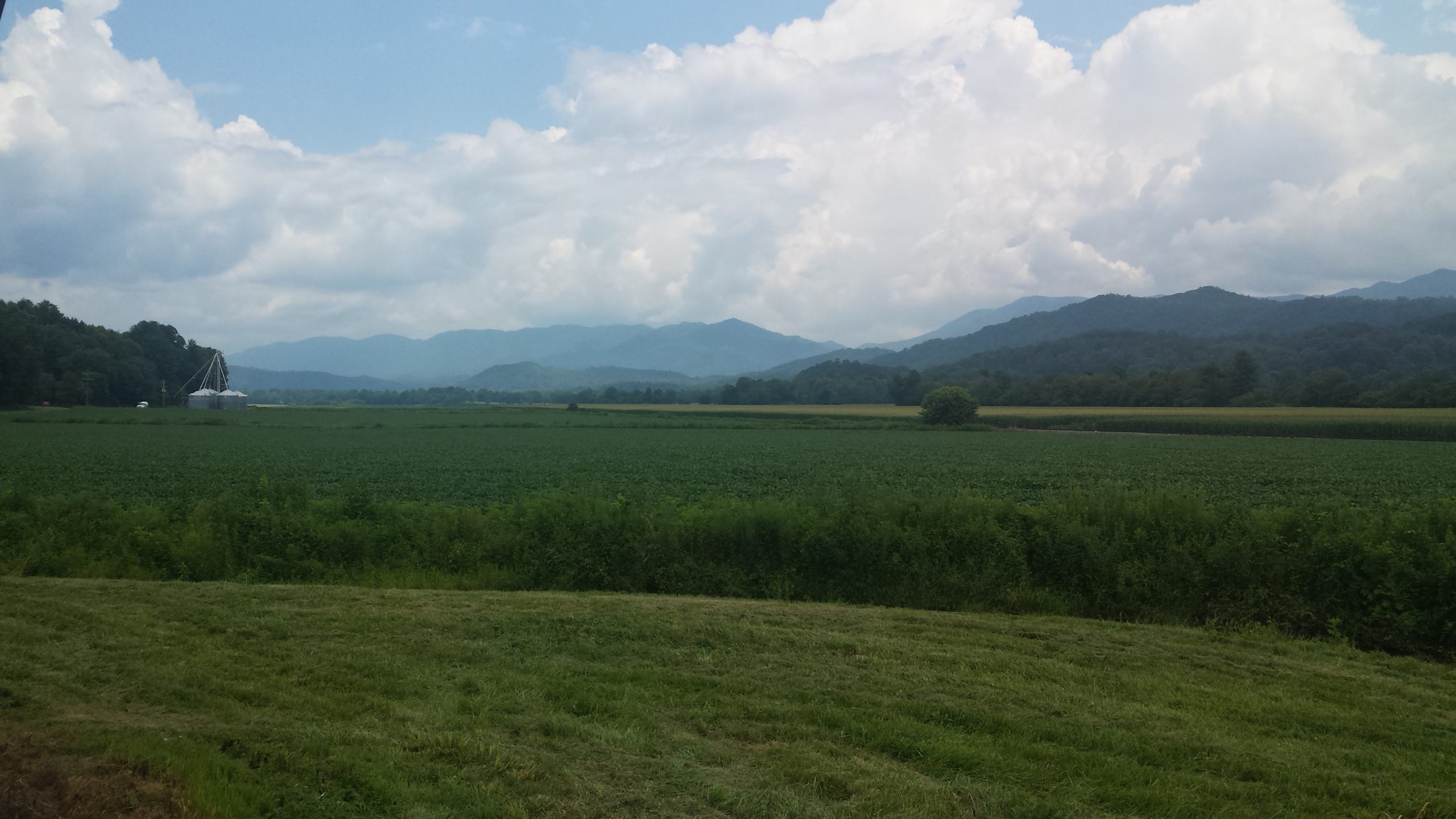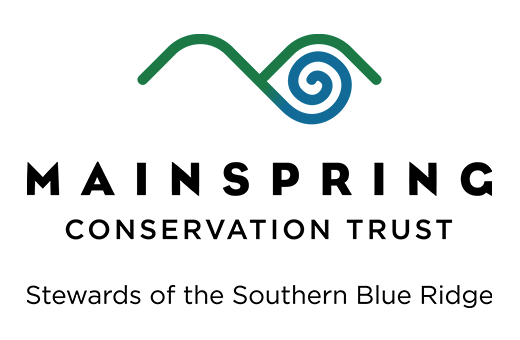November 21, 2022 – A regionally and nationally significant river restoration project is moving forward on the Oconaluftee River, where a coalition of federal, state, tribal, nonprofit and private partners is working together to remove the Ela Dam in Whittier, North Carolina.
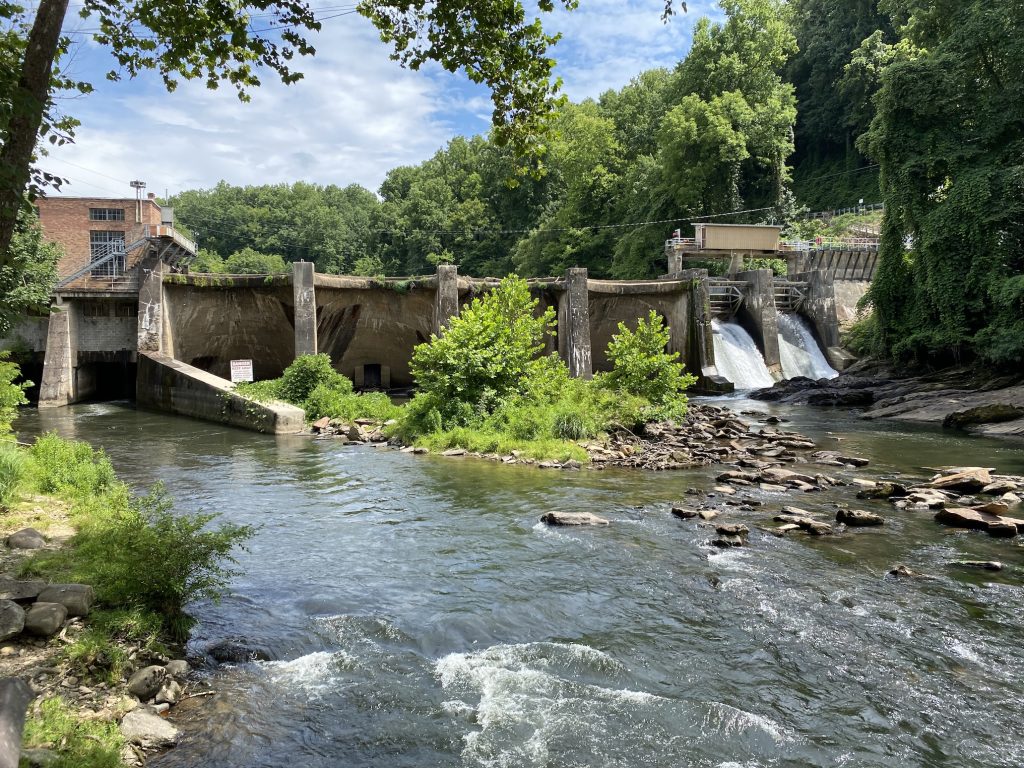
The most recent action is the signing between Mainspring Conservation Trust and Northbrook Carolina Hydro II of an Asset Purchase Option and Sale Agreement. The agreement provides Mainspring, or its assign, the option to acquire the entire impoundment structure, lands and property for nominal value, if it determines dam removal is feasible given available funding and conditioned on receipt of approvals from the Federal Energy Regulatory Commission and other reviewing agencies.
The coalition, which includes the Eastern Band of Cherokee Indians (EBCI), the North Carolina Wildlife Resources Commission (NCWRC), the US Fish and Wildlife Service, American Rivers, Mainspring, and the Southern Environmental Law Center, among others, was initially spearheaded by EBCI Secretary of Agriculture and Natural Resources Joey Owle. Owle had approached Northbrook, Ela Dam’s owner, about removing the dam following the company’s remediation efforts after an accidental sediment release in October 2021 that affected the downstream reach of the Oconaluftee River.
“The tribe has always had an interest in restoring connectivity to our waterbodies, and the Ela Dam has disconnected our river and aquatic relatives for nearly 100 years,” said Owle as he recounted the impetus of this historic project. “When I began this position in 2017, removing Ela Dam was one of the first ideas I pitched to my staff and leadership. The accidental sediment release coincided with an unprecedented funding opportunity from the Bipartisan Infrastructure Law (BIL). That, coupled with determined parties all around ready to pursue the idea of reconnecting 188 square miles of the watershed through a social and environmental justice lens, was perfect timing. I am grateful that Chuck Ahlrichs (of Northbrook) took my call in December 2021, and with a team of exceptional partners, we were able to come together to create an opportunity from the ground up.”
From that first call from EBCI, Northbrook was ready to come to the table with the partners. Nearly 100 years ago, the dam was constructed to support rural electrification but now, the social, economic, and environmental values of reestablishing a free-flowing Oconaluftee River vastly outweigh the one megawatt of output it generates. Northbrook also wanted to improve relations with organizations and agencies that work to protect and improve the nation’s rivers.
“Removing a dam is the fastest way to bring a river back to life,” said Erin McCombs, Southeast Conservation Director with American Rivers. “This project is one of the most exciting river restoration efforts in the U.S., with tremendous benefits including improved water quality, habitat for imperiled fish and wildlife, and cultural reconnection.”
According to American Rivers, 56 dams have been removed in North Carolina to restore river health. If this project is successful, it may serve as a template for how dam owners can work cooperatively with American Rivers and other partners to decommission dams when the value of a free-flowing river outweighs a dam’s power generation.
Mainspring Executive Director Jordan Smith says the EBCI-led coalition meetings have resulted in each partner bringing their organization’s best to the table to find a creative path forward.
“As a land trust, we are used to owning assets,” he said. “American Rivers brings their expertise in managing dam removals while the NC Wildlife Resources Commission and US Fish and Wildlife Service have supported the initiative from day one, identifying and providing funding and prioritizing this project within their offices. And without the leadership from the EBCI and Northbrook’s willingness to essentially contribute the property to the effort, we absolutely could not move forward. This is truly a team effort.”
Removal of the dam will open 549 river miles of the Oconaluftee River and its tributaries; streams across the entire Qualla boundary and parts of the Great Smoky Mountains National Park will be connected once again to the lower Oconaluftee and Tuckasegee Rivers. Additionally, culturally important fish species will have access to spawning areas in upstream Tribal waters after being disconnected from them for nearly a century.
Mainspring’s and Northbrook’s signing of the Asset Purchase Option and Sale Agreement allows the coalition to continue its work on the next phase of project planning. With funding from the North Carolina Wildlife Resources Commission, American Rivers is leading the design and engineering studies for dam removal while the coalition moves forward with planning and regulatory approval processes. Mainspring’s purchase option will expire in April 2023.
